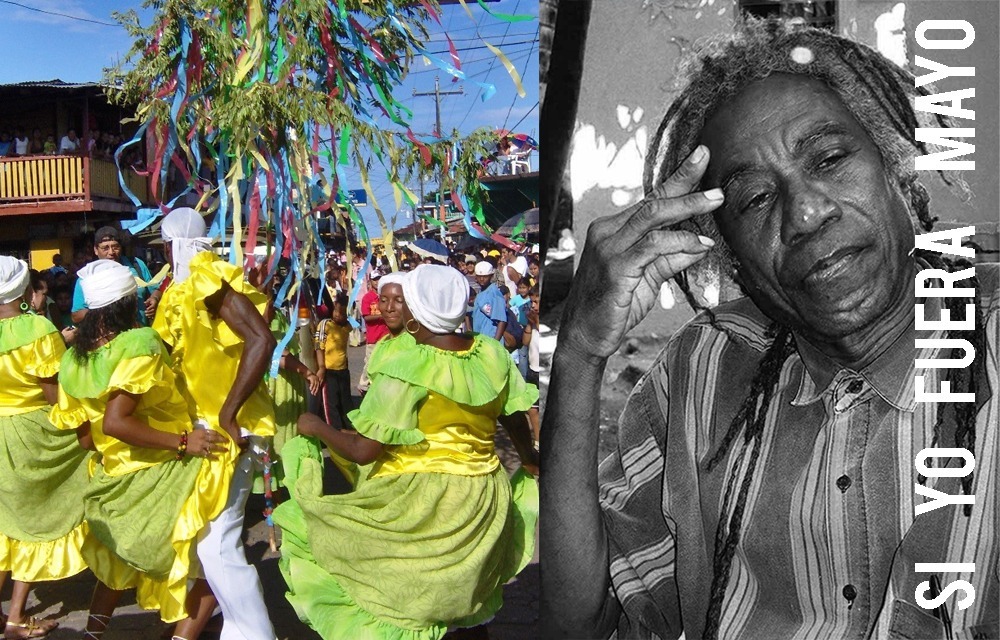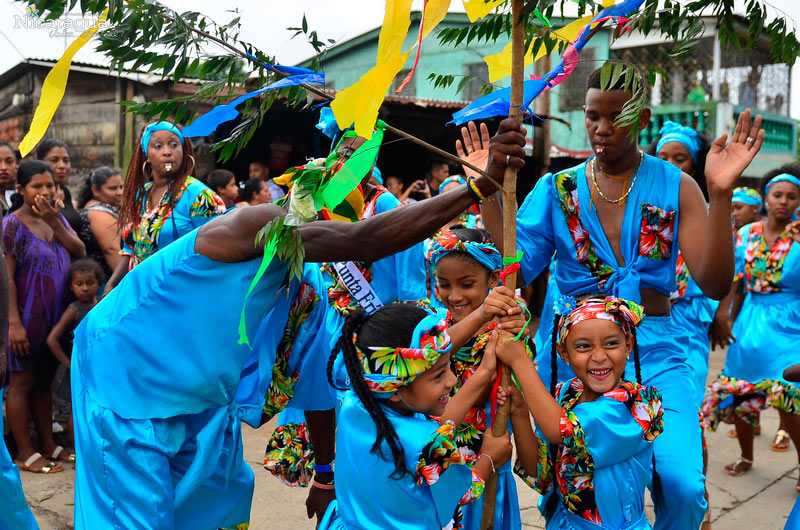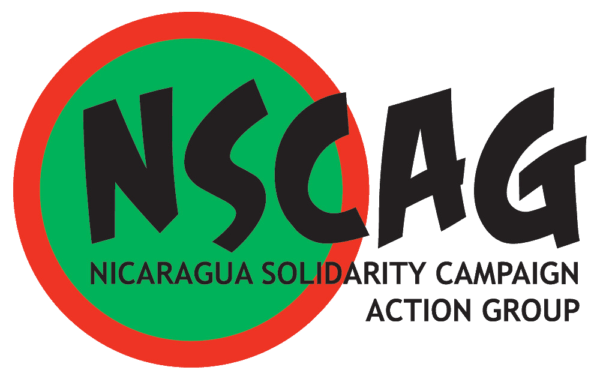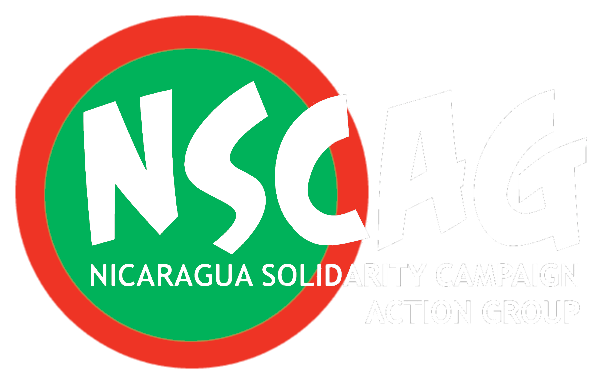Nicaragua Solidarity Campaign Action Group
22 June 2023
Caribbean style may pole: a celebration of life, fertility, and hope

Not long after the arrival of Christopher Colombus in the part of the Caribbean Coast of Nicaragua called Mosquita, along came Africans, (escaped slaves from the Caribbean,) the British, the Dutch, the Germans, and the Spanish.
All these groups contributed their own traditions to the fusion that has become Caribbean May Pole celebrations. Is it of Celtic, ancient Egyptian or Germanic origin? ‘The only thing that we can say for certain,‘ according to social historian Donovan Brautigam, ‘is that May Pole has a universal origin.’
The flora, the weather, and the multiple customs of the Caribbean Coast merged creating a whole new take on an age old celebration.
The original Maypole of the Caribbean carries rhythms based on instruments such as a coconut grater, donkey jawbone, tortoiseshell, washing tub, hand drums, and maracas, as well as guitar, banjo, accordion, and violin. The traditional genre of Maypole music is calypso and soca, popular in the English-speaking islands of the Caribbean.
Some traditional songs from Nicaragua are Sing Simon Sing My Love, Mayaya Lost His Key, Launch Turn Over, Come Down Breda Willy, among others. Many of the Maypole songs are testimonials and denunciations of injustices that occurred in the communities of the Nicaraguan Caribbean at a particular time. Other songs are of English origin such as ‘London Bridge is falling down’ and ‘Doing the Lambeth walk’.
Mayo Ya: Maypole belongs to everyone

Until 1979 Palo de Mayo was mainly celebrated by black creole communities in Bluefields, Pearl Lagoon, Corn Island and Bragman’s Bluff in Bilwi. But as part of the government Caribbean Coast autonomy process after the triumph of the Sandinista Revolution in 1979, the celebrations also took the name Mayo Ya, a celebration for all ethnic groups of the Caribbean: May Pole belongs to everyone. The Afro- Nicaraguan poet and writer Carlos Rigby opened the May festivities in 1980 by explaining that the name originates from the Mayaya, the goddess of rain.
Today Mayo Ya is an intercultural celebration of fertility, life, the coming rains bringing together all the peoples of the Caribbean: Meskito, Garifuna, Creol, Rama, Mestizo and Afro descendant peoples in events that incorporate music, dance, food, art, and craft.
“JUDITH DROWNDED”: the song about spreading fake news
There are many people who speak and announce without check if the facts are real. The thing is that they announced that Judith had drowned and it turns out she was very much alive in her bed at home. In the song the soloist is questioning the legitimacy of the fake news about Judith. But the chorus keeps insisting, “Someone say that Judith drowned.”
Chorus:Judith drownded, Judith drownded
Somebadi se Judith drownded
Soloist: Judith no drownded Judith da bed
Chorus: Somebadi se Judith drownded
Soloist: Ho se Judith drowded?
Chorus: Somebadi se Judith drownded
Soloist:Where were you when Judith drownded
Chorus:Somebadi se Judith drownded…..
Carlos Rigby, poet singer, writer, storyteller
Carlos Rigby, who died in 2017, was an Afro-Caribbean poet from the black Creole community of Pearl Lagoon on the Caribbean Coast. He wrote in Creole and standard English as well as in Spanish but his poems and writings are sprinkled with invented words and tongue twisters reflecting the sounds and concepts of the oral story telling tradition of the Caribbean.
Excerpt from ‘If I were May’ by Carlos Rigby
in the middle of the May Pole wheel
with my rain dance
and my solitude
a dance for the first rains of spring
and in the end
it is through the new green
that the voice of the people is heard
yelling from high atop the May Pole:
May, oh May, most faithful month.
Further information including a link to an excellent film about Carlos Rigby’s life entitled ‘Antologia de Carlos Rigby’ www.antologiacarlrigby.com

